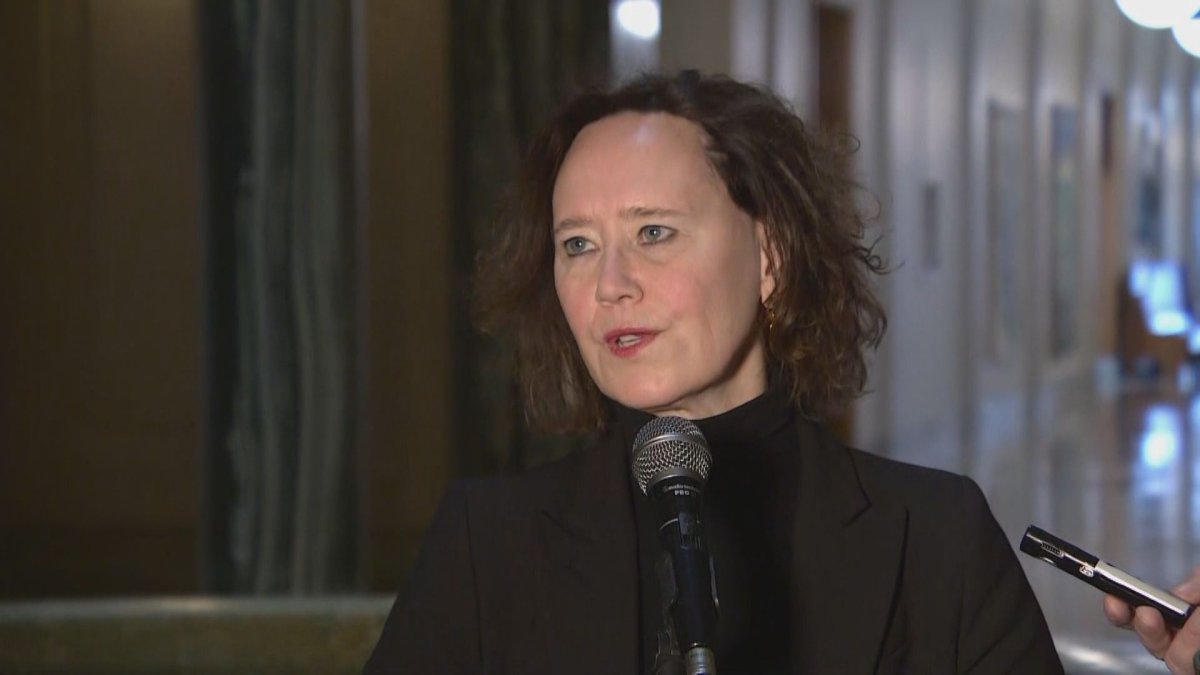A long-standing wish of those operating second stage shelters in Saskatchewan appears set to be granted.

Saskatchewan Justice Minister Bronwyn Eyre announced during question period Wednesday that the province will begin providing operational funding to the shelters in its coming budget.
“We felt it was an important signal on International Women’s Day to let the people know that additional funding is going to be forthcoming in the budget,” Eyre said outside the chamber Wednesday afternoon.
“We’ve been looking at this for a while. Second stage is generally in that 18-24 month period and there are a lot of important phases that that covers.”
Currently, Saskatchewan is among few provinces that don’t provide operational funding for second stage shelters, which offer long-term housing and programming for women and children trying to escape abusive situations.
Meanwhile, Saskatchewan continues to have some of the worst rates of domestic violence of any region in Canada.
According to a 2021 Statistics Canada release detailing 2019 data, Saskatchewan had the highest rate of intimate partner violence of any Canadian province at a rate of 724 victims per 100,000 residents. The national average was 344.
- Budget 2024 failed to spark ‘political reboot’ for Liberals, polling suggests
- Peel police chief met Sri Lankan officer a court says ‘participated’ in torture
- Wrong remains sent to ‘exhausted’ Canadian family after death on Cuba vacation
- Liberals having ‘very good’ budget talks with NDP, says Freeland
Eyre didn’t go into specifics about who will receive funding, or how much the province will spend, but indicated the money will allow shelters to operate more beds and free up resources for important programming.
“Transition to jobs, continued safety, continued stability, but also educational opportunities for children, second stage often steps in and ensures that next step,” Eyre said.
She said more information will be made available at budget time on March 22.
Second stage shelters in Saskatchewan include Sapohtewin House in La Ronge; the Prince Albert Safe Shelter for Women, Adelle House and Turning Points in Saskatoon; North East Outreach 2nd Stage Housing in Melfort and SOFIA House and Wichihik Iskwewak Safe House in Regina.
These shelters will often house their clients for as long as two years.
One 2020 study conducted by Women’s Shelters Canada concluded that second stage shelters reduce the risk of future abuse, trauma and femicide.
That study recommends “sustainable, core operational funding for all second stage shelters,” pointing out the shelters are a unique form of transitional housing that provide wraparound supports including expertise in gender-based violence, survivor-centered programming, counselling, housing-related support and safety planning.
“The lack of sustainable funding for second stage shelters significantly impacts their ability to provide all the necessary programs and supports to keep survivors safe and moving towards independence,” the study reads.
But many second stage shelters across Canada still rely on fundraising to meet their operating costs.
Second stage shelters in Newfoundland and Labrador, Saskatchewan, and Ontario don’t receive any sustainable provincial government funding.
Eyre’s question period announcement came in response to a flurry of opposition questions highlighting the level of support Saskatchewan offers to domestic violence victims, those seeking abortion and services and contraceptives, as well as the lack of pay equity legislation in the province.
Speaking after question period, Justice Critic Nicole Sarauer welcomed the shelter funding news and pointed out that it’s something her party has been calling for for years.
“I’ve been here for seven years, and we’ve been calling for this for at least six,” Sarauer said.
“We do want to see this as sustainable, multi year funding, and we want to ensure that those providing this service are directly consulted on how this is rolled out.”
Asked how funding levels will develop over the coming years, Eyre indicated that will be determined by outcomes.
“We want to make sure that the commitment is there, that it is a commitment going forward and we’ll look how established we can make second stage with our partners over the next year and then whether we expand from there and where we go form there,” she said.
Asked why the province has waited until now to commit to such funding, Eyre said “we definitely have been looking at this for a while”.
“We have spent $25 million in the past year alone on emergency and shelter services. I think we have felt traditionally, or wanted to establish whether that first stage of service also can do a certain amount of transition service and I think it’s become clearer that second stage is an important next step. We wanted to take time to make sure we had the best fit and the best wrap around services for that next stage.”
In its 2022-23 budget, the Saskatchewan government committed $24.9 million in interpersonal violence supports including:
- $1.1 million in programing for children exposed to violence;
- $650,000 for early outreach and support for those experiencing family violence through the Family Intervention Rapid Support Teams (FIRST);
- $8.7 million for shelter services for women and children leaving situations of violence;
- $1.7 million in services for those that experience sexual violence;
- $1.9 million for intervention and support services, including counselling, for those that experience intimate partner violence.




Comments